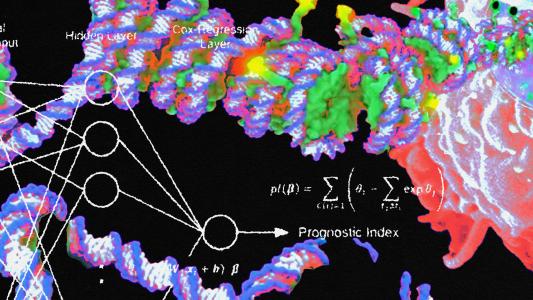The AI behind ChatGPT is bringing this toy to life
Pop artist Grimes has teamed up with Silicon Valley startup Curio to create a stuffed toy rocket that can understand and talk to kids, using the same AI technology powering ChatGPT.
The background: In April, X user Roon tweeted a prediction that “every last thing in the future will be animated with intelligence,” including children’s teddy bears. The post caught the eye of Grimes, who has three children with X owner Elon Musk.
“This would be great if safe,” Grimes, who was born Claire Boucher, wrote in a reply to Roon’s tweet. “Parenting is so hard, I’d love if my kids were hanging out w smthn equivalent to a culture ship mind in a teddy bear haha that’s prob too much to ask…”
The AI toy: Grimes’ kids might already be grown by the time we see toys powered by AIs as intelligent as the Minds in sci-fi writer Iain M. Banks’ Culture series (if we ever see them), but there’s still time for them to play with Grok, an AI-powered stuffed rocket capable of carrying on conversations with children (no relation to Musk’s “Grok” chatbot).
“This toy, you’re talking to it, and it’s talking back. You’re imagining, and it’s challenging you.”
Sam Eaton
Curio developed Grok (short for “Grocket”) with input and investment from Grimes. She also voices the AI toy, which is built on top of OpenAI’s GPT language models, the same ones powering ChatGPT — that gives Grok the ability to interpret what kids are saying and respond in language they can understand.
“This toy, you’re talking to it, and it’s talking back,” Sam Eaton, president and chief toy maker at Curio, told the Washington Post. “You’re imagining, and it’s challenging you.”
The details: Curio is selling a beta version of Grok on its website for $99. That price will get you the AI toy — delivered in 2024 — as well as a 60-day subscription to “Curio Plus,” which appears to be a requirement if you want to be able to converse with Grok.
“There will always be some baseline functionality without a subscription!” Curio writes in its FAQs. “With a subscription, you will always have conversational capabilities as well as new features from the Curio team as they are released.”
No word on what the company expects to charge for a subscription after the 60 days. We do know, though, what the next two toys in its lineup will be: Grem, an alien that loves the color pink, and Gabbo, an enthusiastic robot.
Playing safe: The idea of an AI toy that “listens” to children will no doubt raise red flags for some parents, but Curio is taking steps to assuage any privacy concerns, telling WaPo that Grok won’t collect or store voice data.
“We want parents to have influence over what the toy believes.”
Sam Eaton
Parents can also use a companion app to download transcripts of any conversations their kids have with the toy or make certain words off-limits for it. In the future, Curio plans to give parents even more control over the AI.
“If this is going to be a guest in the house, we want parents to have influence over what the toy believes,” said Eaton. “Maybe your family is vegetarian or religious and you want to influence [conversation around those topics]. Or maybe your kid has certain interests, like dinosaurs, and you want to put them in there.”
The unknown: Curio says it has implemented guardrails to ensure Grok’s conversations are “kid-friendly,” but it hasn’t shared details on those, meaning we don’t actually know what the toy could say to kids.
“If you are scared, maybe wait a little bit.”
Misha Sallee
The company doesn’t seem entirely sure, either — in an interview with Axios, CEO Misha Sallee emphasized that Curio is launching Grok in beta, suggesting that it expects customers to be willing to risk the chance of the AI toy saying something to their kids that they might wish it hadn’t.
“We are looking for the more pioneering families willing to go on this journey with us,” said Sallee. “If you are scared, maybe wait a little bit.”
We’d love to hear from you! If you have a comment about this article or if you have a tip for a future Freethink story, please email us at [email protected].






